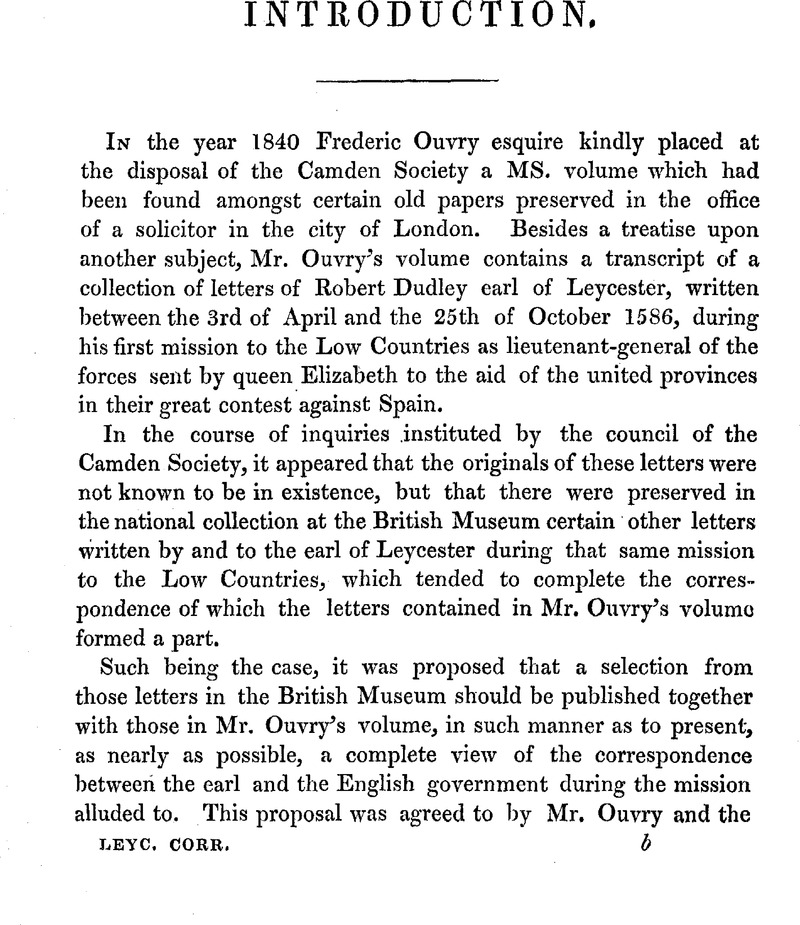No CrossRef data available.
Article contents
Abstract

- Type
- Introduction
- Information
- Copyright
- Copyright © Royal Historical Society 1844
References
page iii note * Bumet's Own Time, ii. 82, ed. 1823, 8vo. Oxon.
page viii note a There are in. the British Museum copies printed in English, Latin, French, and Italian.
page xv note * It seems clear, from a passage in a letter of sir Philip Sydney's, dated 24th March, 1586, (Harl. MS. 287, fol. 1.) that the countess certainly at one time designed to join the earl in the Low Countries. Sir Philip Sidney disapproved of her intention, and wished that “some way might be taken to stay my lady,” as he terms her, “in England.”
page xxvii note* The circumstances of Hemart's trial and execution are related at pp, 308, 309
page xxxi note * Cotton. MS. Galba, C. x. fol. 65.
page xxxiv note a One very striking proof of the enlarged and liberal character of the queen's political views occurs in reference to Leycester's proceedings in the Low Countries, although the authority for it does not appear in the present correspondence. Her majesty complained to the earl that he had greatly discouraged the papists, “being good patriots,” and “having no less interest in the cause than the protestants themselves,” and that by his exclusive conduct in reference to that portion of his subjects, and his new impositions and exactions generally, he had lost much of his popularity. The earl answered, that he had used the papists indifferently as the rest, but that he found them nothing differentfrom those at home, “for both desire change, both love the pope above all things, and no longer hide it than severe laws keep them under.” The authority for this will be found in Dr. Birch's note of a letter of Leycester's, dated the 26th June, 1586, contained in the Addit. MS. 4105. If the Camden Society are not weary of the subject I shall hope at a future time to be permitted to publish the original authority with other letters relating to the conclusion of the earl's career as an absolute governor.
page xliv note * This letter reveals to us that in 1569, during the rebellion in the North, the great seal was put to a warrant for the execution of Mary queen of Scots. The dispersion of the rebels probably rendered it unnecessary to act upon the warrant, and the fact of its existence remained unknown to historical writers until the discovery of Mr. Ouvry's volume.




